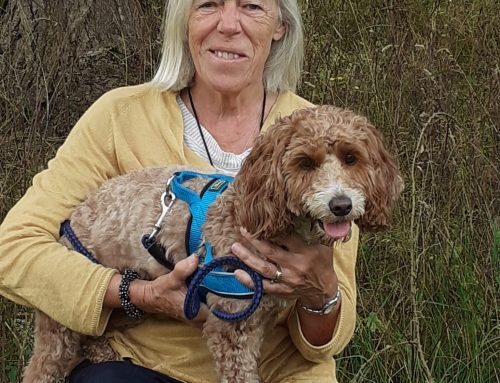We’ve shared below links to new and existing resources and some helpful approaches for PDAers, plus a list of free resources that are available whilst we’re all at home social distancing or self-isolating.
We’ll keep updating this page with additional information, ideas and resources – and please do let us know if you have other tips or links to share ...
Some of these ideas may need a little PDA adaptation (see below for further ideas on this) and some may be interchangeable between adults and children, depending on the individual …
Talking about coronavirus
- Talking to kids about coronavirus – Child Mind Institute
- Beacon School’s newsletter – how to talk to children about coronavirus
- The science of soap – how it kills coronavirus – The Guardian

Thank you to Sally Cat for creating this graphic for us
Mental health & well-being
- Managing feelings about lockdown easing – Mind.
- NHS – Every Mind Matters.
- Strategy to Manage Emotions During Coronavirus – Ashley SLT.
- CAMHS Resources – a pool of resources available to help support mental health and well-being.
- Tips on finding our way back to our ‘window of tolerance’ during the coronavirus pandemic – Additude (not PDA specific).
UK Government information & guidance
- Coronavirus testing.
- Recent and upcoming changes and guidance and support.
- Face coverings (please see Face coverings section below).
- What parents and carers need to know about early years providers, schools and colleges during the coronavirus (COVID-19) outbreak (applies to England).
- Children of critical workers and vulnerable children who can access schools or educational settings.
- Safer travel guidance for passengers.
- Back to school – what you need to know – The Education Hub (Aug 2021)
Guidance: visiting loved ones in inpatient settings, care homes and supported living
- GOV UK COVID-19: guidance for supported living – includes guidance around visitors (applies to England).
- right2visit website – guidance for families and close friends having problems visiting loved ones who are autistic and/or have learning disabilities in inpatient mental health settings, care homes and supported living.
School & college
- To help PDA students and their families and teachers prepare for the return to school and college, we’ve collated some helpful resources and information (2020) and Back to school resources for education professionals (2021).
- What to do if your child’s SEND education rights are denied when schools fully-reopen – Special Needs Jungle webinar recording.
- Children of critical workers and vulnerable children who can access schools or educational settings – GOV UK.
- Using Xbox or PlayStation to access Hwb (remote online learning hub in Wales).
- Get help with remote education – GOV UK
- Back to school – what you need to know – The Education Hub (blog.gov.uk) – GOV UK
Face coverings
- GOV UK update – Face coverings: when to wear one and how to make your own. Includes information about exemptions and exemption cards.
- GOV UK guidance: Face coverings in education (in England).
- Information on understanding why face coverings may be difficult for autistic people and ideas for helping from The Washington Post and Harvard Health Blog (not PDA or UK specific).
- Exemption cards:
- GOV UK printable exemption card and badge (digital version for mobile phone also available).
- Other exemption cards have also been made available online. Here are some examples: Arriva; First Group.
- Panda-themed face masks from WWF UK
Accessible information
– social stories etc.
- Coming out of lockdown (easy read top tips) and other easy read resources by Ambitious about Autism
- Free coronavirus social story by Carol Gray
- Helping autistic students understand coronavirus using visual strategies – Linda Hodgdon
- Coronavirus story for children – Elsa Support
- Dave the Dog is worried about coronavirus by Nurse Dotty Books – a book for children about coronavirus that aims to give information without fear
- Beating the Virus and other free picture stories and illustrated guides about coping with coronavirus by Beyond Words – a short wordless story to help people understand what to do if you have Coronavirus and how to keep yourself and those who you care about safe
- Dimensions has shared easy read information and social stories about coronavirus
- Playmobil Coronavirus explainer video
- Children’s guide to coronavirus – Children’s Commissioner
- Coronavirus A book for children illustrated by Axel Scheffler – Nosy Crow free digital book
- Easy read posters – free to print or share online – Keep safe
- How Lego can be used to explain social distancing to children – BBC
- Having a Coronavirus test at home social story – South Glos Parents & Carers
- Information about vaccines: For people with a learning disability and autistic people – NHS (video)
Links for autistic adults
- Coping with the coronavirus outbreak – tips from adult PDAers
- Autism and quarantine – NeuroClastic
- Sensory Kits for Adults – Allison Davies (YouTube video)
Links for parents & carers
- Autism and coronavirus: information for parents by blogger Rosie Weldon
- Social Workers Toolbox – guide for parents/carers and cartoon book about coronavirus
- How families can cope with self-isolating together – BBC News
- Play in Crisis: support for parents and carers (information and ideas so you can support your child’s play) – International Play Association
- contact For families with disabled children Coronavirus pages – latest updated information and support about Coronavirus and its impact on families with disabled children
ARFID –
Avoidant/Restrictive Food Intake Disorder
If you or your child is only able to eat safe foods, ARFID Awareness UK has made letters available to help explain this and request exemption from restrictions on purchase quantities of these items.
PDA Society resources
- Our PDA Alert Cards and PDA Awareness Cards can be shown to people to explain PDA and how they can help – available from our shop in packs of 25 cards.
- We’ve put together some PDA-related suggestions that may be helpful to include in healthcare passports.
- Our series of Q&A videos about PDA during the coronavirus pandemic. Topics include: education; siblings; preparing children for life after the coronavirus outbreak; managing video calls and transition tips; helping PDA teens & young adults understand lockdown rules and hand washing tips for PDA adults.
Other useful links
- The National Autistic Society’s website information about Coronavirus.
- Coronavirus and SEND Law – Special Needs Jungle.
- List of local autism alert card schemes around the UK – National Police Autism Association.
Resources & things to do whilst at home
- List of free resources and other useful links to things that are available to do whilst we’re all at home social distancing or self-isolating. Includes links to education resources
Other thoughts …
- Maintaining contact with the outside world will be important for everyone during this period of social distancing and self-isolation – fortunately there are lots of ways to keep in touch and maintain a sense of community using modern technology. Many local PDA support groups (listed here) are online and there’s a range of PDA Facebook support groups listed here as well. Our website discussion forum also offers peer to peer support.
- Likewise, there may be opportunities for home and online working which may suit some autistic people well.
- Do let us know if you have other tips or links to share with our PDA community!





